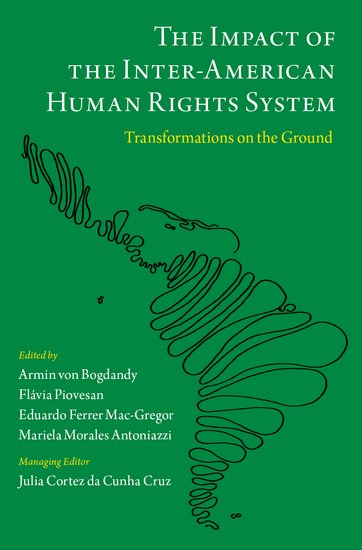Inducing Compliance as a Transformative Process: The Bright Side of a Dismal Record
Über das Buchkapitel:
This chapter explores the apparent paradox that, despite a dismal rate of compliance with its decisions, the Inter-American Court of Human Rights (IACtHR) is constantly right in the middle of the most important controversies in Latin America. To do so, it argues that “compliance” is too narrow a prism to account for the transformative effects of the IACtHR’s expansive compliance activities. By focusing solely on compliance, we risk concealing the wider impact of the Court’s orders, which comes to light when the Court’s influence on the Latin American community of human rights practice is considered. It is in that dynamic process of interaction that the transformations triggered by the Court take root, and it is thanks to the work of that community of practice that the broader impact of the Court occurs. In the Inter-American System, compliance is transformation, and the community of practice is the key step that takes us from compliance to impact.
Über den Sammelband:
The Inter-American Human Rights System (IAHRS) fosters structural transformations throughout the Americas. This collection of analyses builds upon the studies on Ius Constitutionale Commune en América Latina and Latin American transformative constitutionalism to map out both the ground-level human rights impact of the IAHRS and the institutional characteristics that have enabled such fundamental changes in social reality. The volume starts with essays framing the concept and context of IAHRS impact. Then it navigates thematic analyses on specific rights and types of violations that are front and center to the protection of human rights in Latin America. The concluding essays explore whether and how it is possible to optimize the actions of the Inter-American System, indicating possible paths to increase positive human rights impact. The editors contend that the IAHRS victim-centric approach, community of practice, and openness to institutional reinvention have enabled it to create a virtuous cycle that catalyzes human rights in the Americas, furthering democracy and the Rule of Law throughout the continent.


